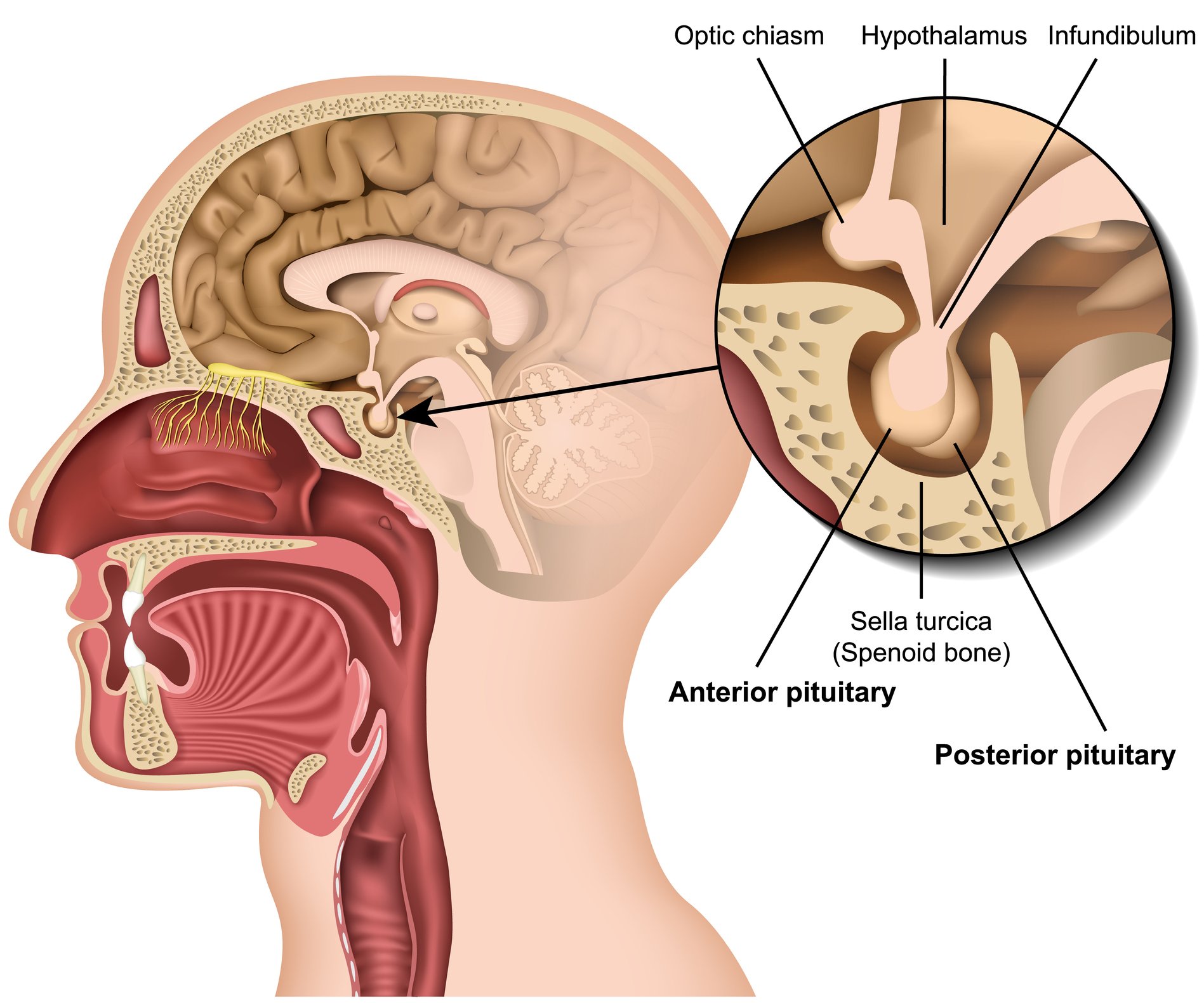
Our Services
"Dr. Burton cares about her patients and their individual experience. She personalizes her treatment approaches based on the needs and goals of her patients and involves both the patient and the parents in the treatment program. Although many of the medical issues she deals with are very complex she is able to explain things in a very simple straightforward way that is easy to understand. She is everything you want in a doctor: knowledgeable, caring, and empathetic! We love her."
Diabetes
-
Type 1 Diabetes occurs when the body stops producing insulin, a hormone needed to regulate blood sugar levels. It often begins in childhood or young adulthood and requires daily insulin therapy for management. While there is no cure, early diagnosis and proper care can help children lead healthy, active lives.
-
Type 2 Diabetes develops when the body becomes resistant to insulin or doesn’t produce enough of it. Once rare in children, it is now more common due to rising obesity rates. Treatment often involves lifestyle changes, medication, and, in some cases, insulin therapy to prevent long-term complications.
Growth Hormone Deficiency
-
Growth Hormone Deficiency occurs when the pituitary gland in the brain doesn’t produce enough growth hormone, leading to slower-than-expected growth in children. Common symptoms include slow growth (less than 2 inches per year), delayed puberty, and a slightly rounded facial appearance.
Diagnosis involves careful evaluation through blood tests, bone age X-rays, and sometimes a Growth Hormone Stimulation Test. Treatment typically includes daily Growth Hormone Replacement Therapy, administered via injections. With proper care, children can achieve improved growth and development.
For more details, visit magicfoundation.org or nlm.nih.gov.
Puberty Disorders
-
Precocious puberty occurs when children begin puberty earlier than expected—before age 7-8 in girls or before age 9 in boys. It’s more common in girls and often has no specific cause, though occasionally it may result from medical conditions affecting the brain or gonads.
Signs in Girls:
Breast development
Rapid growth
Vaginal discharge or bleeding
Signs in Boys:
Enlarged testicles or penis
Pubic hair
Voice deepening
Evaluation includes hormone tests, bone age X-rays, and potentially further testing by a Pediatric Endocrinologist. Treatment may involve hormone therapy to pause puberty or addressing any underlying conditions.
Learn more at lupronped.com or supprelinla.com.
-
Delayed puberty is when a girl has no signs of puberty (breast development) by age 13 or a boy shows no signs (testicular enlargement) by age 14. While this can be a family trait, it may also signal underlying medical conditions such as genetic or chromosomal abnormalities.
Signs in Girls:
No breast development by age 13
More than 5 years between breast development and menstrual period
No menstrual period by age 16
Signs in Boys:
No testicular enlargement by age 14
No pubic hair by age 15
Puberty not completed after age 19
Evaluation may include blood tests, bone age X-rays, or imaging of the pituitary gland and gonads.
Treatment
Most cases are simply monitored, but hormonal therapy (testosterone for boys, estrogen for girls) may be prescribed to assist in development. If conditions like Turner’s or Klinefelter’s syndrome are diagnosed, long-term care by an endocrinologist is necessary.
Thyroid Disorders
-
Congenital hypothyroidism occurs when a baby is born with low thyroid hormone levels, which are crucial for brain development. It can result from thyroid development issues, poor hormone production, or antibodies from the mother. Early treatment with thyroid hormone replacement is essential to ensure proper growth and development.
Signs in Babies:
Jaundice
Constipation
Poor feeding
Thick tongue
Poor muscle tone
Treatment:
Thyroid hormone replacement is started immediately upon diagnosis, typically in pill form, and closely monitored by a Pediatric Endocrinologist to track growth and development. -
Acquired hypothyroidism usually develops in older children, often as an autoimmune condition where the body attacks thyroid tissue. It can also result from medications, radiation, or surgery. It's more common in adolescent girls and can impact growth and energy levels.
Signs and Symptoms:
Fatigue
Weight gain
Dry skin and hair
Slow speech
Swollen thyroid gland
Treatment:
Thyroid hormone replacement in pill form, taken consistently daily. Initial labs are checked frequently to adjust the dosage. -
Hyperthyroidism occurs when the thyroid produces too much hormone, speeding up metabolism and leading to weight loss, rapid heart rate, and heat intolerance. Grave’s Disease is the most common cause in children and adolescents.
Signs and Symptoms:
Enlarged thyroid (goiter)
Rapid heart rate
Tremors
Weight loss
Bulging eyes
Treatment:
Treatment may involve antithyroid medication, radioiodine ablation, or thyroidectomy. Long-term thyroid hormone replacement therapy is required after surgery or radioablation.
Pituitary Disorders
-
Pituitary Disorders
The pituitary gland, located at the base of the brain, is often referred to as the "Master Gland" because it controls a variety of hormones that regulate critical body functions. Disorders can be congenital (present at birth) or acquired later in life, resulting in deficiencies of hormones like growth hormone (GH), thyroid stimulating hormone (TSH), or others. Panhypopituitarism refers to the deficiency of one or more of these hormones and can be caused by anatomical conditions such as septo-optic dysplasia, or by tumors or radiation treatments in older children.
Signs and Symptoms:
Infants:
Underdeveloped genitalia
Low blood sugar
Persistent wandering eyes (nystagmus)
Excessive urination and dehydration (Diabetes Insipidus)
Older Children:
Poor growth
Increased thirst and urination
Fatigue
Delayed puberty
Visual changes
Evaluation:
Diagnosis often begins with blood tests to evaluate pituitary hormones, possibly followed by ACTH stimulation tests. Urine tests or a water deprivation test may be done if Diabetes Insipidus is suspected. An MRI of the brain can help assess the pituitary gland's anatomy.Treatment:
The main treatment involves hormone replacement therapy for any deficient hormones. If an anatomical abnormality like Septo-Optic Dysplasia is present, the child may need to see specialists in Ophthalmology and Neurology. In cases where a tumor is suspected, an oncologist will be consulted for further care.Let me know if you'd like further details on any specific aspect!
Adrenal Disorders
-
Congenital Adrenal Hyperplasia (CAH) is a group of inherited disorders affecting the adrenal glands, which sit above the kidneys and produce vital hormones like cortisol and aldosterone. The most common form, 21-hydroxylase deficiency, leads to insufficient production of these hormones, which can be life-threatening. CAH can range from mild to severe, with newborn screening detecting the severe forms, but sometimes missing milder cases.
Signs and Symptoms:
Severe (Classic or Early Onset):
Vomiting, poor feeding
Electrolyte imbalances (low sodium, high potassium)
Poor growth, dehydration
Masculinized genitalia in girls
Mild (Non-Classic or Late Onset):
Girls: Early pubic/underarm hair, acne, irregular periods, possible PCOS
Boys: Early facial/pubic hair, enlarged penis without testicular growth
Evaluation:
Blood tests check adrenal hormone levels like cortisol and 17 OH Progesterone. If needed, an ACTH stimulation test and genetic testing may follow. Bone age x-rays are performed for children diagnosed later.Treatment:
Cortisol replacement therapy, usually in the form of hydrocortisone, is crucial. Children with aldosterone deficiency (salt-wasters) may need fludrocortisone and salt replacement. Increased doses of hydrocortisone are required during stress or illness. Surgical intervention may be necessary for abnormal genitalia.For more details, visit: CARES Foundation
-
Adrenal Insufficiency happens when the adrenal glands fail to produce adequate amounts of essential steroids like cortisol and aldosterone. This condition can arise from issues in the adrenal glands or pituitary gland. These hormones regulate the body's stress response and balance of blood pressure, electrolytes, and water.
Signs and Symptoms:
Excessive fatigue, weight loss
Poor appetite, nausea, vomiting, abdominal pain
Darkened skin, salt cravings
Evaluation:
Blood tests measuring ACTH and cortisol levels, typically in the morning, help diagnose adrenal insufficiency. An ACTH stimulation test can assess pituitary and adrenal responses, and adrenal antibodies may be tested to check for Addison’s Disease.Treatment:
Treatment includes hormone replacement with daily hydrocortisone or prednisone for cortisol and fludrocortisone for aldosterone. Dosage adjustments are necessary during periods of stress or illness.






